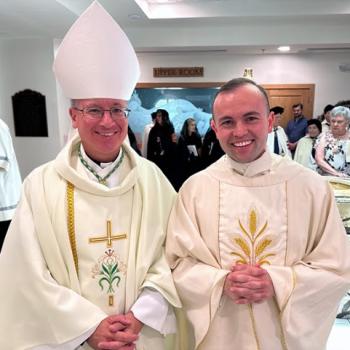Actual Grace And Scripture
Jesus loves us and wants us in Heaven with him. To understand actual grace, it is important to differentiate it from sanctifying grace. Sanctifying grace is that grace that grace that we receive at Baptism.
Actual grace is that grace that assists us in our daily lives. It inspires us and guides our minds to focus on the things of God and assists us on our journey to the beatific vision.
The concept of actual grace has strong roots within the pages of sacred scripture. In the Psalms, the Psalmist is asking God to enlighten and guide him. St. John write in John chapter six that no one can come to Jesus unless the father calls him (Jn 6:44-46).
The concept continues in Acts 16:14 where the Lord touched the heart of Lydia to follow the instruction of St. Paul. It continues into the book of Revelation where “divine grace operates on the will” (Hardon Ch.6). Grace is a gift and the gift needs a giver (Gleason 125). Without the giver our efforts are in vain.
St. Augustine vs. Pelagius
The concept of actual grace in scripture went unchallenged until the Pelagian controversy arose. This is when St Augustine first gives a detailed explanation of it in his anti-pelagian writings.
He explains that is God who works within us, and any good that we do is because God operated because our wills require a mover (Hardon Ch. 6). This sentiment was echoed, though a little differently at the councils of Carthage and Orange.
Carthage noted that the knowledge of what to do and the love for doing it come from God. The council of Orange added that it is the inspiration and illumination of the Spirit that allows us to do such things.
Brief Theological Breakdown
The theological analysis of actual graces can get quite complex, but it need not be so. John Hardon defines actual graces as “internal and immediate illuminations of the intellect and inspirations of the human will” (Hardon Ch.6).
They are internal because they allow a person to perform actions that can lead to heaven. If we are moved to live a life of charity, then this is a work of actual grace. Actual grace can further be broken down into prevenient grace and cooperating grace.
Prevenient and Cooperating
Prevenient grace precedes our free will to exercise it. It is the grace that calls us to a particular action. Cooperating grace is when the graces coincide with our will and assists us in doing what we should do. In addition to two types of actual grace, there are two theories that seek to describe actual grace. One is the Molinist notion is based on the simultaneous of God and man’s faculties working together (Hardon Ch. 6). The other is the Thomist which states that God acts on the mind first to enable the action.
All A Gift
Each day we have a choice to make. Will we follow Christ, or will we go our own way? Christ tells us in Luke 9:23 to pick up our cross daily. That means that each day we die to our own wants and follow the way of the master. The grace that he gives us is a free gift, but we have a choice with how we use this gift.
We can discard it or we can use this gift for what it was intended. Christ wants us in Heaven with him and he gives us these graces to assist us in getting there. It isn’t works salvation like some falsely claim, but a choice to choose whom we will serve. Choose wisely.
Works Cited
Gleason, R.W. Grace. New York: Shead & Ward, 1962.
Hardon, John. History and Theology of Grace. Ann Arbor, MI: Sapientia Press, 2005.
Journet, Charles. The Meaning of Grace. Princeton: Scepter Publishers, 1997.














